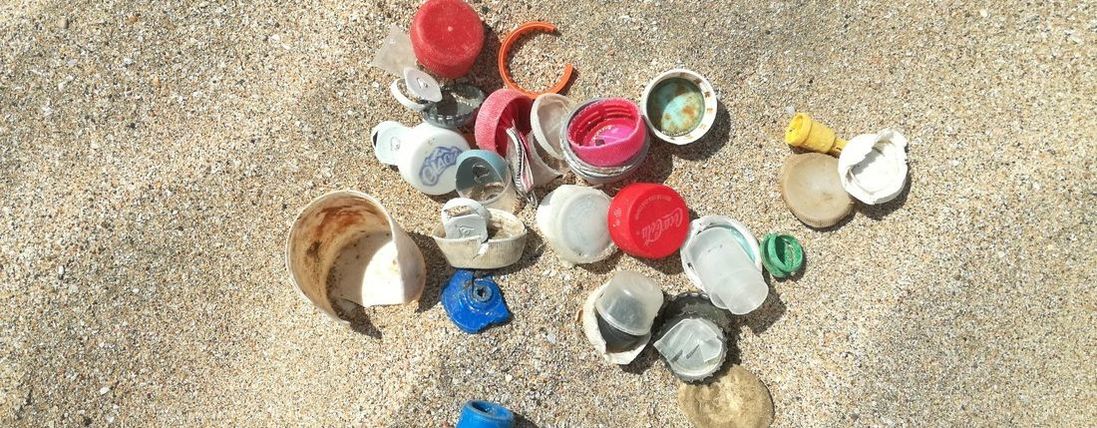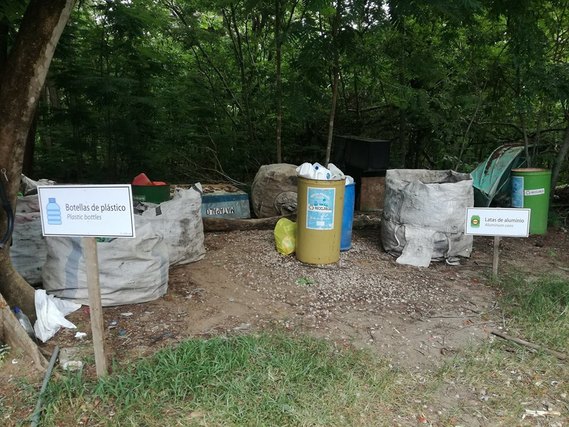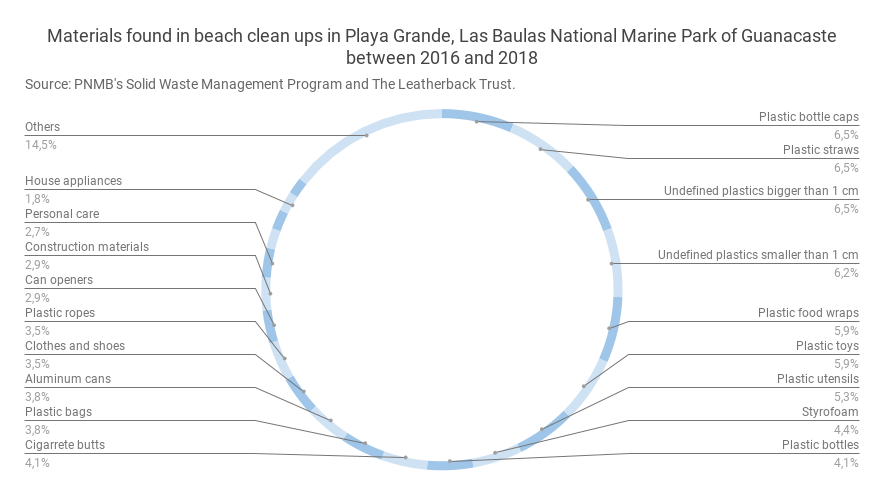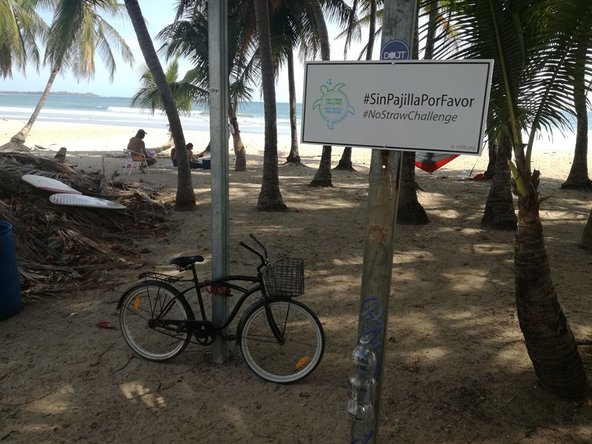|
Bottle caps, plastic straws and small plastics are always present in Playa Grande, Las Baulas National Marine Park. Now, the Park receive the bottle caps to be used in Cahuita National Park.  We invite you to bring the plastic bottle caps to the small collection center in the National Park and extend its useful life through a project of Cahuita National Park, Pro-Parques and Amigos de los Parques Nacionales called “Cahuita Accesible”. The plastic will be used for the development of an accessible path to the sea. This material will be transformed to be in signage, rails, steps, benches and among others. We urge neighbors, business owners and visitors to separate their plastic waste and bring it to the small collection center we have in the administrative complex of Las Baulas National Marine Park in Playa Grande. We remind you that we receive plastic bottles, glass containers and aluminum cans. We have placed signs to guide you. Always PresentThe plastic bottle caps, the plastic straws and the undefined plastics smaller than 1 cm in diameter are always present in Playa Grande. Las Baulas National Marine Park of Guanacaste is an important site for the nesting of migratory birds and sea turtles, some species threatened at the critical point of extinction. The plastic is easy to confuse with living organisms. Turtles with plastic straws in a nostril or birds with small plastics in their digestive system are evidence of this material as a threat to wildlife. From the second semester of 2016 to the first semester of 2018, more than 30 cleanups have been registered in and around the National Park in coordination with local organizations and volunteers. Of those made in Playa Grande, on 22 occasions there was an exhaustive separation of the waste by categories, in which the following materials were found: In these cleaning campaigns, a total of 503 kilograms of solid waste was collected. In those where an exhaustive separation was made, the bottle caps accounted for 7.8% of the total weight, 5th place after the larger plastics and those less than 1 cm in diameter, clothing or footwear and plastic bottles. Everything starts with a challenge The single-use plastics are still materials that can be avoided to be collected on the beaches of the National Park. Half of the weight collected in the separation campaigns corresponded to single-use plastics, that are those materials that mostly fulfill a function and are quickly discarded as bottles, bags, straws, caps, utensils and among others. There are different initiatives to reduce the use of single-use plastic in Costa Rica. In Playa Grande, the #NoStrawChallenge or #SinPajillaPorFavor has motivated different entrepreneurs and users to avoid delivering or receiving plastic straws. On a larger scale is the National Strategy for the Replacement of single-use plastic, which urges the population to replace these materials with renewable and compostable alternatives. Changing BehaviorsIn a survey applied to visitors and residents of Playa Grande, about 7 out of 10 people surveyed make a prior separation of their waste before taking it to the garbage deposits when they visit the beaches of the National Park. 85% of the interviewees argued to promote these or other conservation actions among their relatives. The massive consumption of plastic is polluting rivers, beaches and wetlands of the Las Baulas National Marine Park and the whole planet. Changing attitudes at the time of purchase can make a bigger difference. Think about the useful life that the plastic will have in your home, the disposition you will make with them and the materials that can replace them to avoid an environmental impact. Finally, if you need to use some plastics like bottles, try to extend its useful life, either by reusing it through innovative ideas and practical use or by sending it to collection centers like the one we manage. We all work togetherProtecting the environment that surrounds us to preserve life is a job that we do as a team. We want to extend our gratitude to all those neighbors, volunteers and organizations who have come to support the cleaning activities and the separation of recyclable materials in the National Park. We also extend our thanks to Leatherback Trust, the UCR Volunteer Program and independent volunteers for their collaboration in the statistics of the Solid Waste Management Program.
For more information on how to help or replicate this movement in your community, institution or home, you can send us a message through this Facebook or Instagram page, approaching our office in Playa Grande or calling 2653-0470. |
AuthorSStaff Archives
February 2020
Categories
All
|
|
Home · Expeditions · Conservation Activities · Volunteer · Blog · Contact · En español
(+506) 8378-9640 · info@sosGrande.org © 2009-2024 Cabo Velas, Costa Rica |
|




 RSS Feed
RSS Feed

